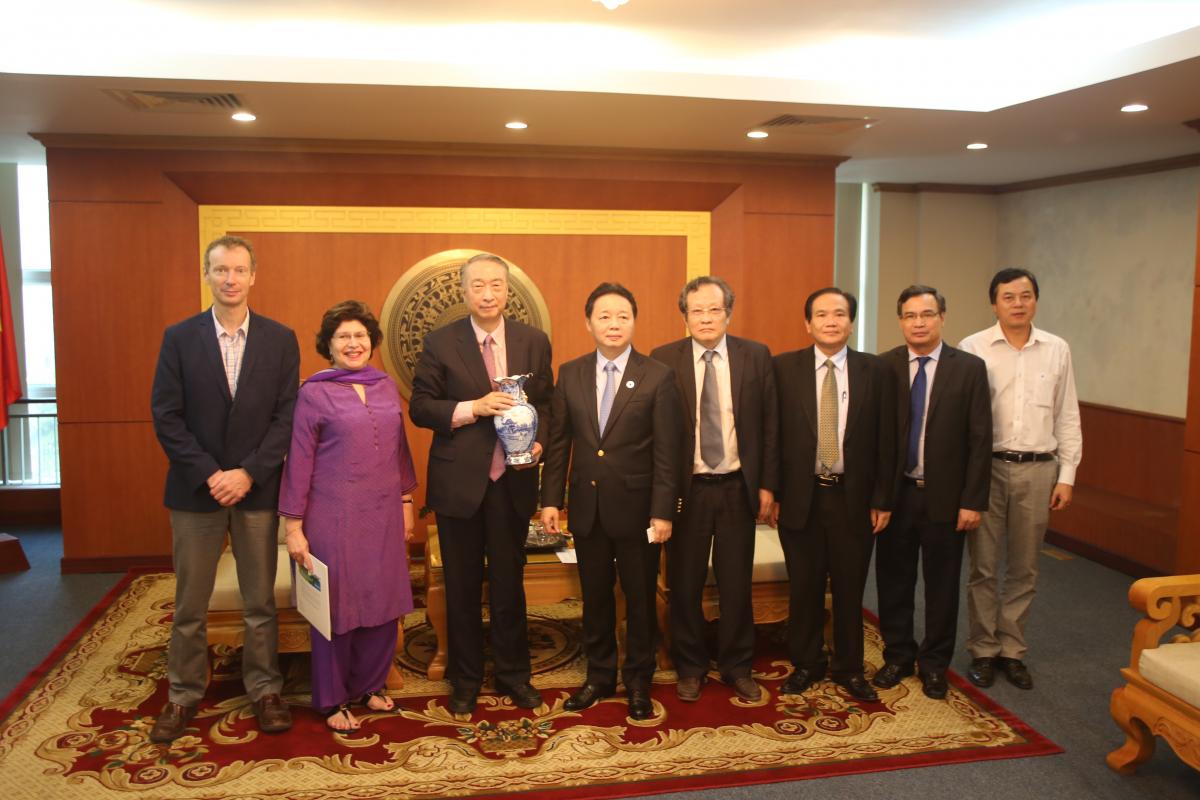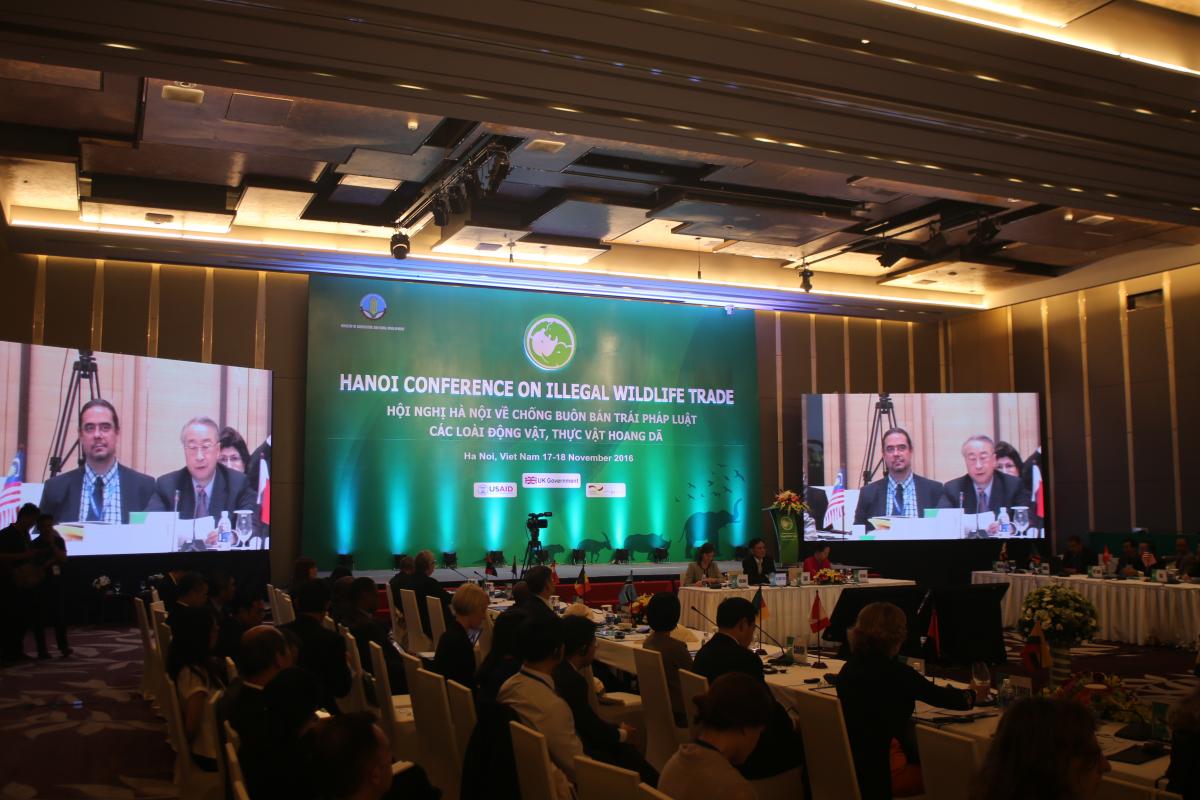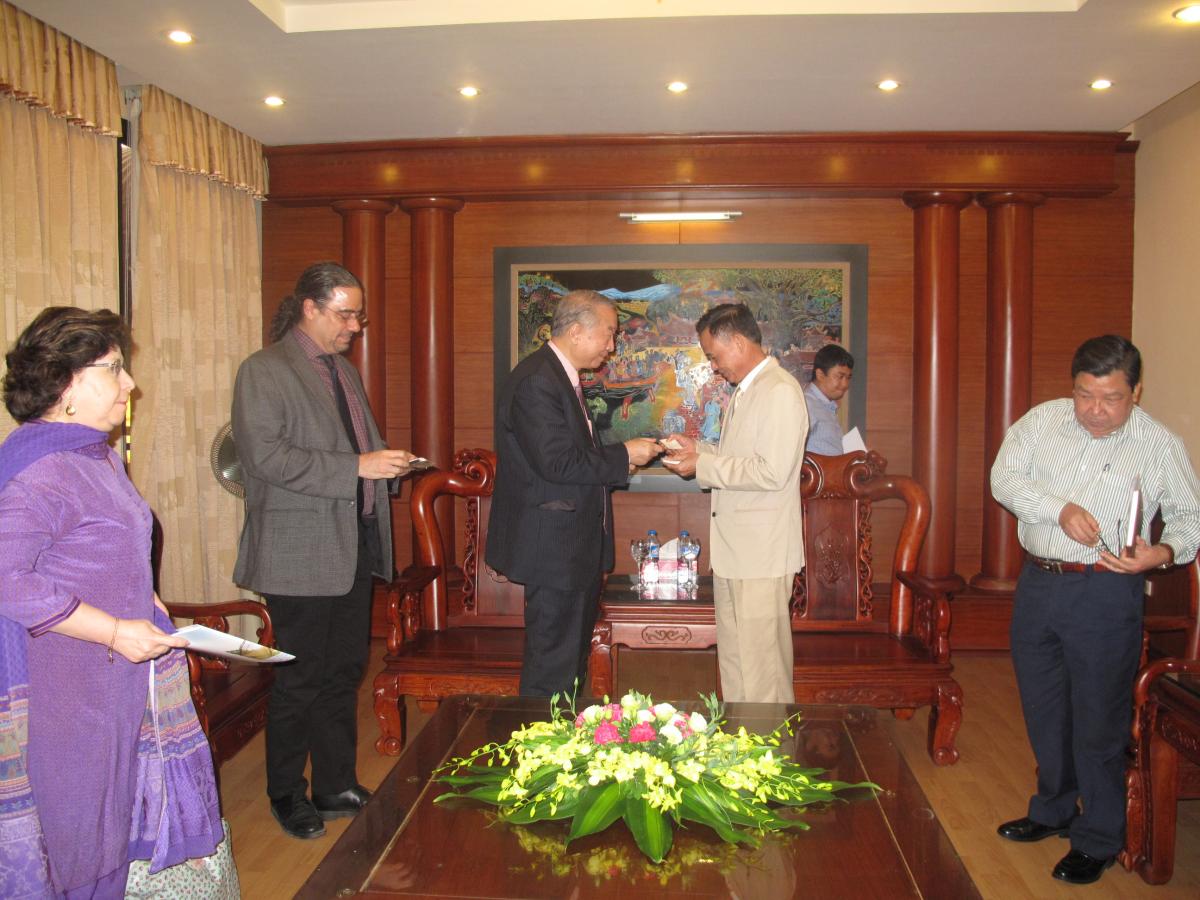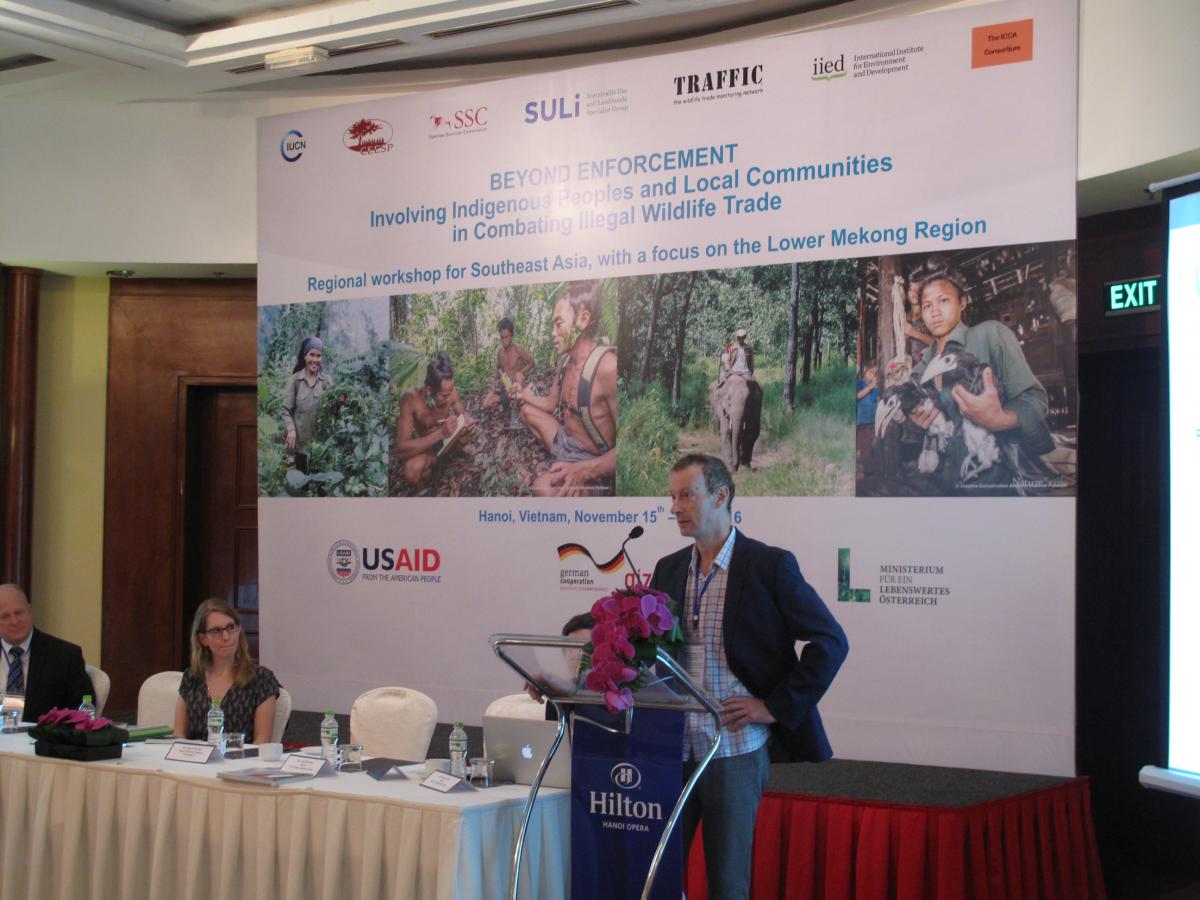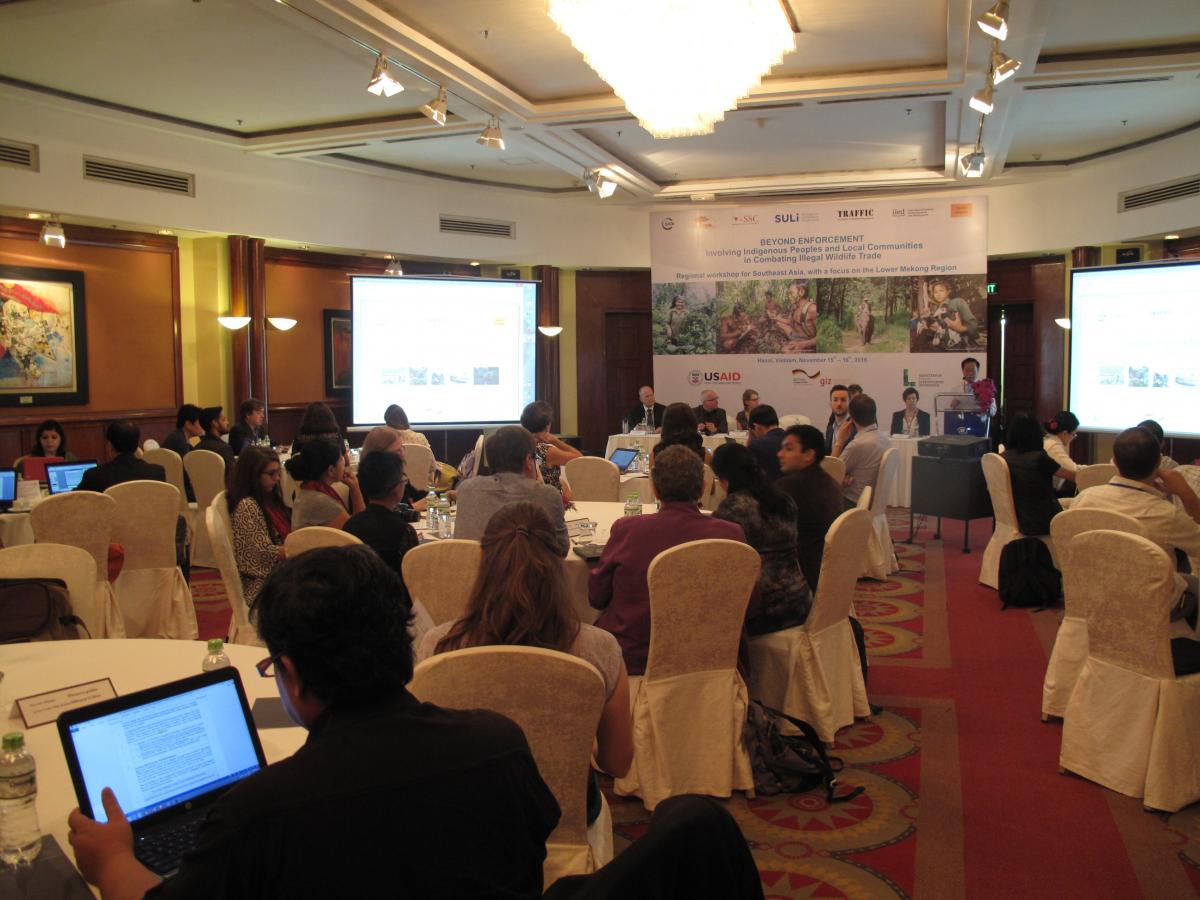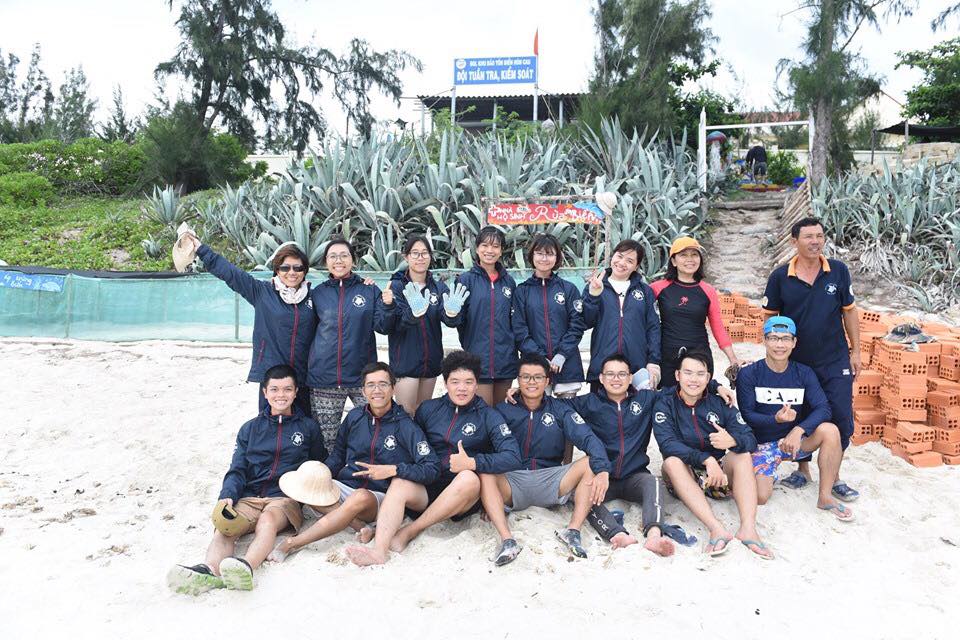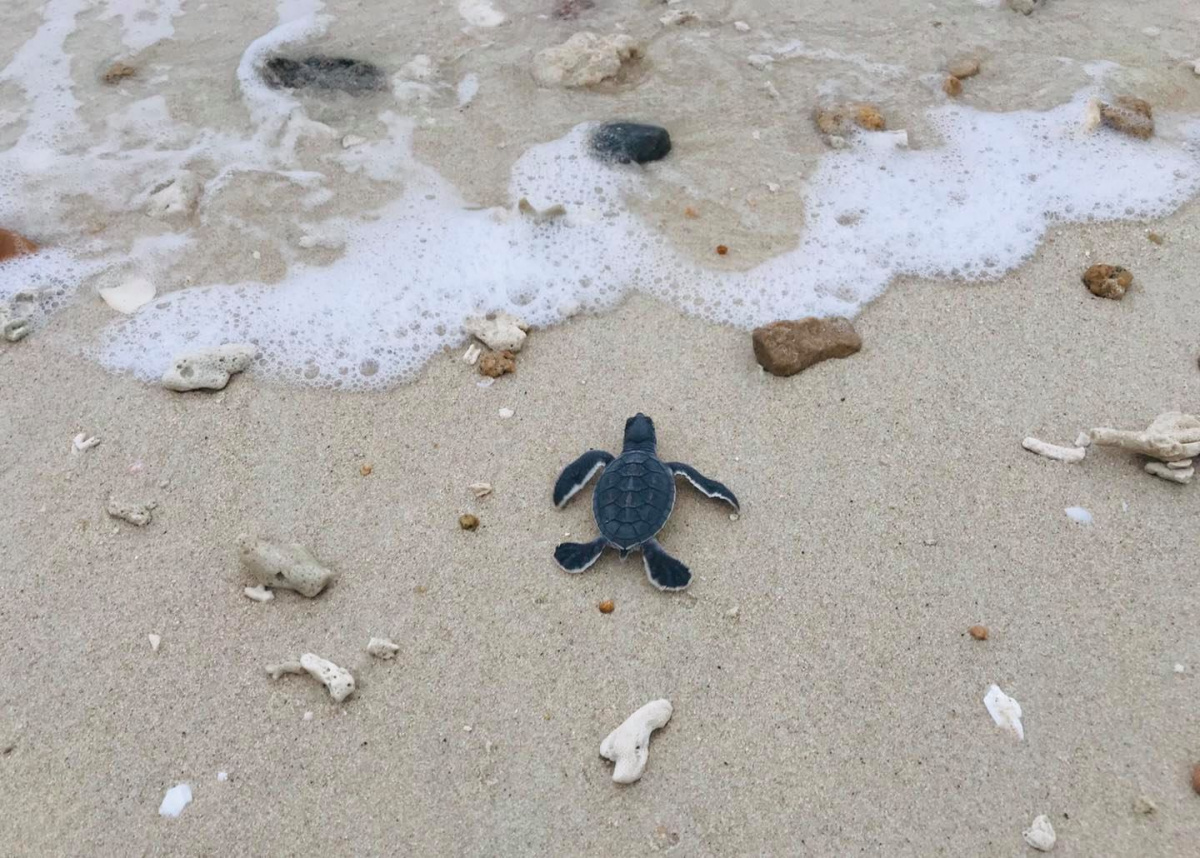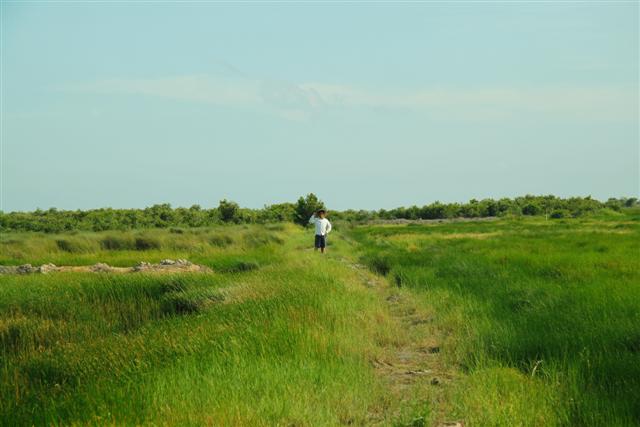IUCN reaffirms commitment to tackling illegal wildlife trade at high-level conference in Viet Nam
The Hanoi Conference on Illegal Wildlife Trade, held on November 17 and 18, brought together global leaders with the goal of eradicating illegal wildlife trade, and to ensure effective protection of endangered wildlife from the imminent threats of extinction.
“Our Union remains committed to turning back the tide of illegal wildlife trade and to mitigate its impact on nature and people. This meeting is an important step in our combined efforts, and IUCN is extremely grateful to the governments of Vietnam and the United Kingdom, for convening this meeting,” said IUCN President Mr. Zhang Xinsheng on the first day of the conference.
“IUCN firmly believes that local communities can, and must, play a role in helping to combat illegal wildlife trade. This is not a new message, but it is one that continues to be overlooked given the current emphasis on law enforcement responses and demand reduction efforts.”
Mr. Zhang also noted that in order to identify the key success factors that will catalyse local communities’ role in combating wildlife crime, IUCN is currently carrying out science-based research, and collating experiences and lessons learned, in order to enhance the understanding of the conditions under which community engagement against illegal wildlife trade will work, and how to capitalize on it.
“With an improved understanding of enabling conditions and incentives, we will be able to provide guidance and technical advice to stakeholders, and further promote opportunities for engaging local communities in combating illegal wildlife trade,” said Mr. Zhang.
Mr. Zhang also met with the Minister for Natural Resources and Environment of Viet Nam, Dr. Tran Hong Ha, to discuss the Green Climate Fund proposal as well as cooperation with the Viet Nam Administration of Seas and Islands.
In addition, Mr. Zhang met with the Vice Minister of the Ministry of Agriculture and Rural Development of Viet Nam Mr. Ha Cong Tuan, and had several meetings with various IUCN Members at the IUCN Viet Nam office to discuss collaboration opportunities, as well as IUCN’s 2017 – 2020 Inter-sessional Programming.
“Poaching and wildlife trafficking are extremely complex issues and are direct factors causing the extinction of many endangered and rare species,” said IUCN Asia Regional Director, Ms. Aban Marker Kabraji. “Such activities are adversely affecting natural resources and rural communities, generating huge profits for international crime syndicates, and contributing to increased public health risks.”
“The response to this imminent global threat is equally varied and complex. Comprehensive and realistic approaches are needed across the entire trade chain, including preserving wildlife populations and habitat, sustainably managing legal trade, curbing poaching, strengthening legislation and enforcement, preventing illegally traded wildlife from crossing borders, and reducing demand for illegally traded wildlife in consumer markets,” said Mr. Zhang during his opening remarks.
Mr. Zhang also said that IUCN places major emphasis on the importance of science-based data on the status of species and populations. “The recently published IUCN African Elephant Status Report 2016 was used by Parties at the 17th Meeting of the Conference of the Parties to CITES to inform decisions on the conservation and management of Africa’s elephants.”
“IUCN calls on donors to support surveys and population assessments for animal and plant species that are known, or thought, to be seriously impacted by illegal killing and trade,” added Mr. Zhang.
“The Hanoi Conference on Illegal Wildlife Trade reaffirms high levels of international support for combating wildlife crime. The challenge now is for the region's governments to translate this support into effective enforcement of national laws.” said Mr. Jake Brunner, Head of the IUCN Indo-Burma Group, reflecting on the Hanoi Conference.
IUCN, the IUCN CEESP/SSC Sustainable Use and Livelihoods Specialist Group (IUCN SULi), the International Institute of Environment and Development (IIED) and TRAFFIC, the wildlife trade monitoring network, as well as the (ICCA) Consortium, supporting Indigenous Peoples’ and Community Conserved Territories and Areas had jointly organised the “Beyond Enforcement: Involving indigenous peoples and local communities in combating illegal wildlife trade” workshop just before the conference on November 15 and 16. The workshop highlighted the importance of engaging indigenous peoples and local communities as active partners in protecting wildlife against illegal wildlife trade by sharing and examining regional experiences and case studies across a number of Asian countries, with an emphasis on the Lower Mekong Region.
At the recent IUCN World Conservation Congress in Hawai’i, IUCN Members adopted 10 resolutions about wildlife trade and conservation.
The Hanoi Statement on Illegal Wildlife Trade, the Review of Progress, Statements by Heads of Delegations, and photographs from the Hanoi Conference are now here.
